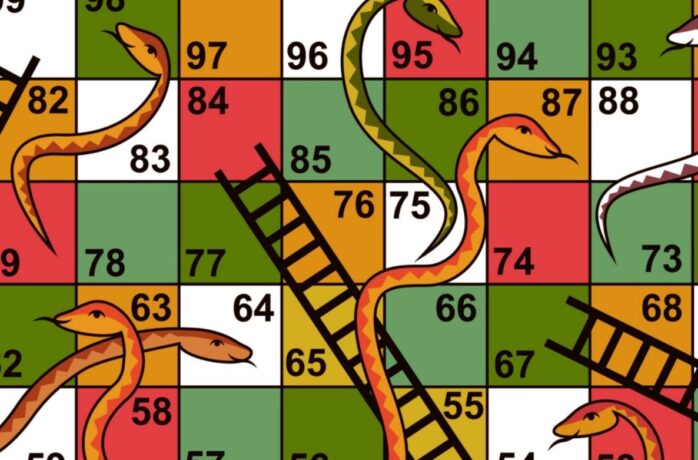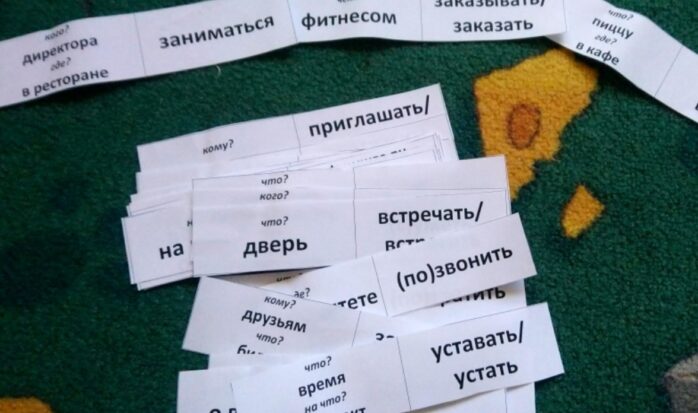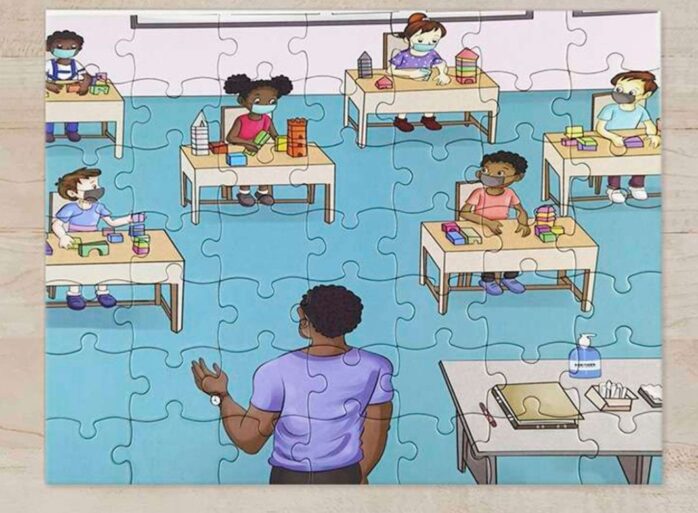Some languages are considered relatively easy; some are quite tricky and require lots of intellectual energy. So, how to make both learning and teaching processes more funny and entertaining? Language games are the best option. Playing them, you are not just resting but also enhancing your grammar and communication skills in a relaxed, tranquil atmosphere.
If you would like to try such an educational style, you can check out a Russian online school website and learn the language regardless of your current knowledge, the amount of vocabulary you remember, and your grammar assurance.
Now, let’s learn about the most useful games that you can play in a class with your teacher and other group mates, or with your friends and acquaintances who are also fond of the Russian language. Moreover, any language teacher not necessarily Russian may adopt these materials for their own needs.
1. Game “Snakes and Ladders”

This well-known game suits you perfectly if you don’t know or are little acquainted with other participants. The necessary types of equipment are one board, bones with six sides, and if there are seven players, seven chips or coins must be in stock. The set of questions that players have to answer displacing to the correspondent cell must be prepared in advance. If you know the level of participants, you can adjust questions to their knowledge.
If a player’s coin comes to the ladder’s bottom, he goes up to its top. If a coin hits the top of a snake, it goes down to the bottom. The victor is the one who comes to the final cell first. A teacher or competitor can control if a player answers questions correctly.
Sometimes it happens that people who play together are of extremely different levels. And still, that game ideally could be played. Then questions are short and simple. Intermediate or advanced learners may answer them in a complicated way using difficult grammar, proverbs, or so, and for beginners, it will be enough to say at least one or two words.
Anyway, for everyone, it is a challenge since questions are random and spontaneous.
2. Game “Correct declination”

It is a great game for automatization of nouns declination in different cases. Let’s take the Dative case, not only plural but also singular, as an example.
Each participant is given a set of eight cards with endings. The teacher or another student has a bunch of cards with words in their basic form. He/she takes one card and shows it to the players. The task is to pick up the card quickly with the correct ending for a concrete word. For example: for the word “соседи” (neighbors), the correct ending will be a card with -ям, and for “соседки” (specifically female neighbors), a card with the ending -ам. The participant gets one score for a precise and fast answer. The first place takes the one with the highest score.
To make this game more challenging, you can suggest students create a long sentence with a given word. Also, a teacher may appoint a student to be responsible for the control and correction of possible mistakes. The best “judge” also gets points.
3. Game “Dominoes: verb agreement”

Playing this game can help anyone to refresh and consolidate the Noun – Verb agreement standards and Imperfective – Perfective aspects. You have to prepare cards beforehand.
Each is divided into two cells, the left cell finishes the expression of the previous card, and the right cell begins the phrase of the following card.
Put one first card on the desk. The rest are laid in the middle of a desk. Ask your students to take three or four cards from the stack. It is allowed to continue the chain both by adding a card to the right or to the left sides. Dominoes are considered outlaid correctly if the sequence is circled. For example, a verb of the final card agrees with an object of the first card.
If you want to intensify the process or make it more compelling, you can come up with creating sentences or a story with completed phrases. For example, the group is divided into two subgroups, one is making a detective story and another – a comedy.
4. Game “Who am I”

It is one of the most amusing and useful games. A participant sits in front of other players with a card on his/her headband. On the card, you see a word-object of any sphere: supplies, animals, clothes and shoes, professions, etc. The task is that a player with the headband has to guess what that object is by asking questions. Other players can only answer yes or no.
So, he/she should pose questions in a proper way. For example: Am I a thing? Do people wear me? Do people use me for cooking? Am I heavy? Am I expensive? Am I a dishwasher? Each participant takes the same position in turn. The winner is the one who can guess the secret by having asked fewer questions.
5. Game “Tic-tac-toe”

A card-board 3*3 is prepared in advance with words, for example, prepositions. A player can put a zero or a cross only if he/she creates a sentence with this word grammatically correct. That could be rather challenging as different prepositions are followed by various cases. The correctness is assessed by the competitor or, if help is needed, by another player or teacher. You can agree that the minimum number in a sentence must be 7 or more.
6. Game “Conversation-puzzle”

The goal of each dialogue is a consolidation of one or more lexical or grammatical topics.
You choose a proper dialogue and cut it into replicas. If this is a class of Russian as a foreign language, the tutor divides the group into small subgroups (2 or 3 students).
Each subgroup receives a cut conversation. The task is to assemble it as fast as possible in the correct order. After all participants complete the dialogue, a teacher asks them to read it by roles. Then, based on the given conversation, students can act out their own one.
That can be impromptu or with the preparation of 3-5 minutes.
As you can have already noticed, making learning Russian fun and exciting is not a big hardship. Play in your classes, Russian-speaking events and parties, and this will help people you teach stay motivated and achieve better results.




